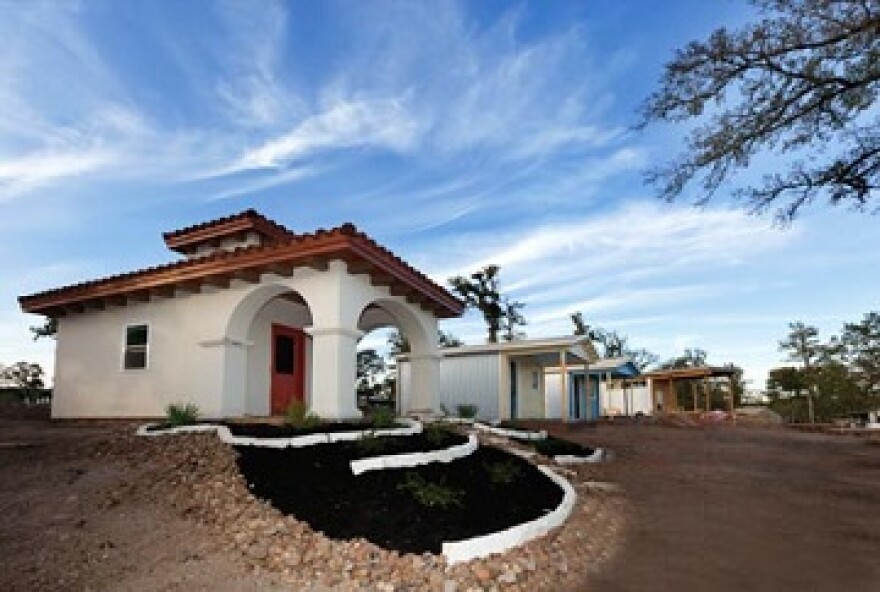A sustainable community sits on a 27-acre plot of land in central Texas.
There are 25 canvas cottages, 100 RVs, and 125 micro-homes.
Residents enjoy communal kitchens and laundry facilities, a market, chickens and goats, an art gallery, and even an outdoor movie theater, and bed and breakfast.
And the residents all have one thing in common: They are chronically homeless.
Community First! Village in Austin opened earlier this month, joining a list of tiny house developments in cities like Seattle and Portland that provide sustainable housing and a supportive community for the disabled and homeless.
The $14.5 million, privately funded development is the work of Mobile Loaves & Fishes, an Austin-based Christian nonprofit organization.

Alan Graham, CEO of MLF told CNN:
I got the idea that we could lift a chronically homeless individual up off the streets into a gently used recreational vehicle. I had this wild and crazy idea to develop an RV park on steroids.
According to the Mobile Loaves & Fishes website, to be eligible to live in Community First, applicants have to show proof of homelessness for at least one year within the Austin metropolitan area.
And there are only three rules: Residents must pay rent, obey the law, and follow community rules.
Right now, about 40 people live in the village's tiny homes. By 2017, Community First plans to be at its full capacity of 250 residents.

The amenities like the art gallery, movie theater, and bed and breakfast are what Graham calls "micro-businesses." The inhabitants of Community First will keep these operations up and running. Many of them are open to the public. The residents who work there will keep the profits, which can go toward their rent, which ranges from $220 to $380 a month.
And there's an economic benefit as well. According to Graham, the city of Austin spends about $40,000 per homeless person every year, mainly in the form of medical and criminal justice expenses.

He estimates Community First will save taxpayers up to $3 million per year. A UNC Charlotte study found a community for the homeless in Charlotte, North Carolina, saved the city $1.8 million in one year.
A new tiny house village could soon make its way to Michigan. M.I.S.S.I.O.N.A2 in Ann Arbor -- which works with tent cities in Michigan to make residents safer and better connected to services -- is working with the city to develop its own tiny house community.

The organization has purchased a plot of land, has a concept home built by The University of Michigan School of Art & Design, and is currently working with architects and lawyers, and meeting with city officials to solidify its plans.
"A lot of the city's homeless live in tents under bridges," said M.I.S.S.I.O.N.A2 board member Brian Durrance. "Our goal is to try to bring people under a safety net."
The final number of units and the spacing will be determined by the planning board.
Community First faced a fair share of "not in my backyard" sentiment before construction began in 2013. But Graham told CNN the residents have come around.
A second village is already being planned.




